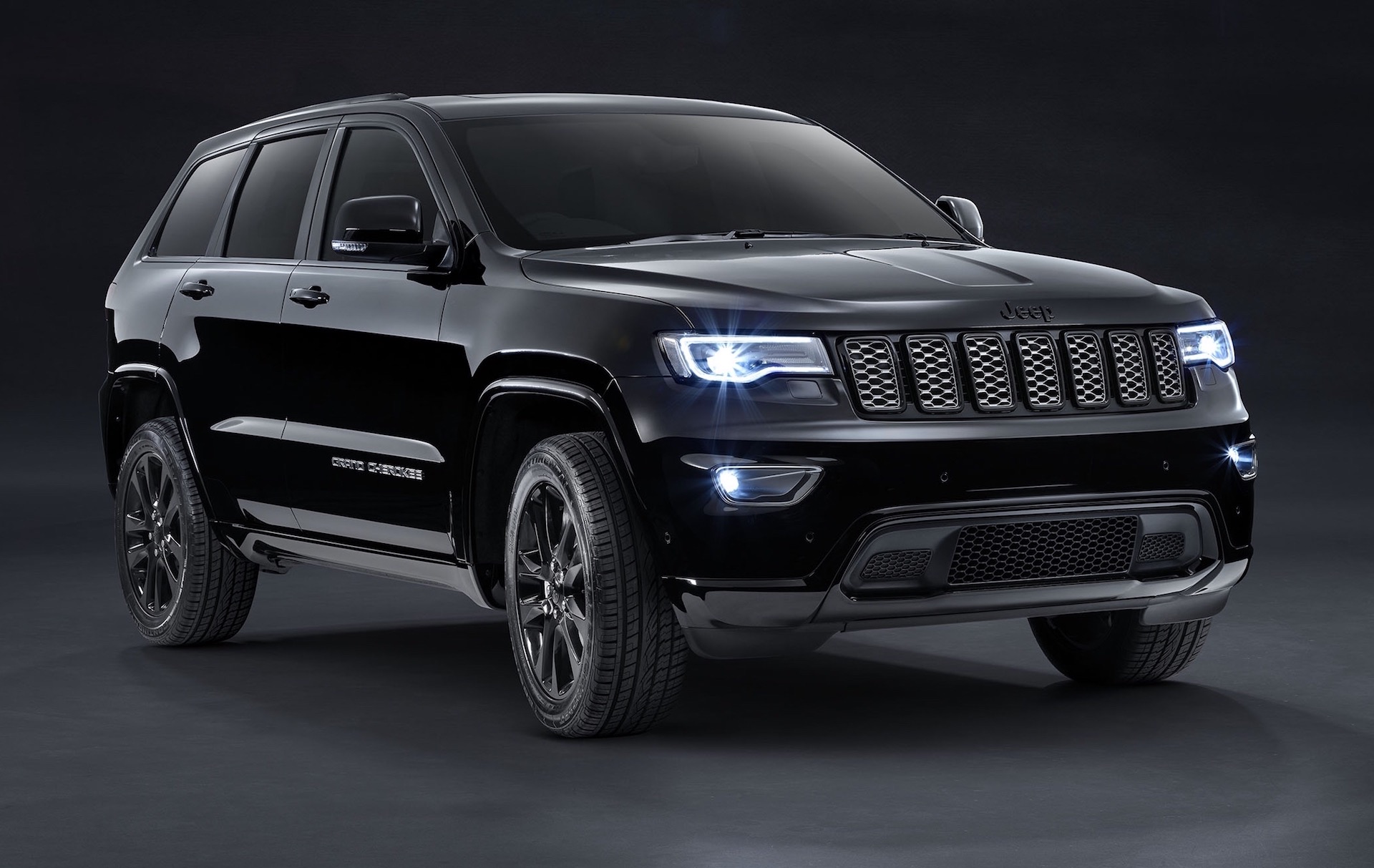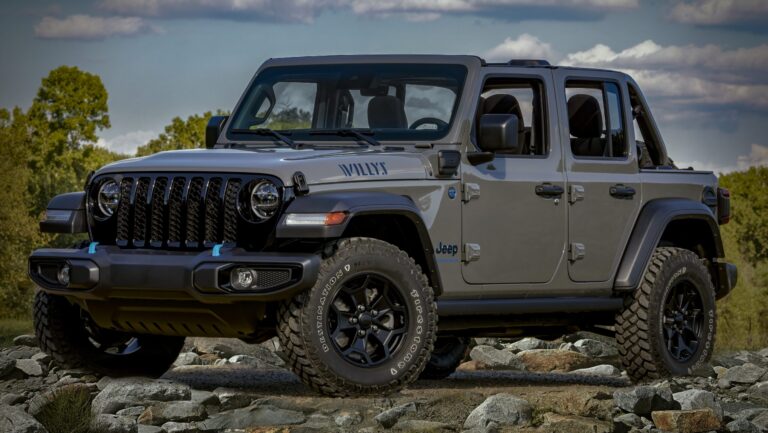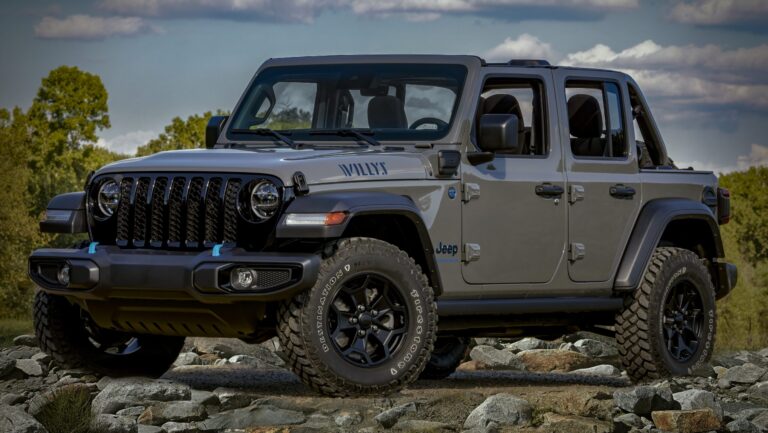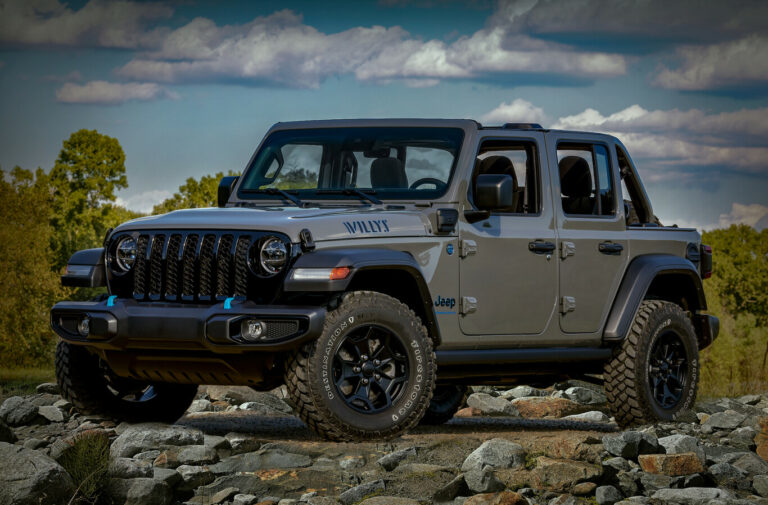Jeep F Head Engine For Sale: Your Comprehensive Guide to Acquiring and Understanding This Automotive Icon
Jeep F Head Engine For Sale: Your Comprehensive Guide to Acquiring and Understanding This Automotive Icon jeeps.truckstrend.com
The rumble of a vintage Jeep engine stirs a unique nostalgia, and for many enthusiasts, the heart of that experience lies with the legendary F-Head engine. More than just a power plant, the Jeep F-Head engine – officially known as the Willys Hurricane – represents a pivotal chapter in automotive history, bridging the gap between the rugged simplicity of its L-Head predecessor and the more modern designs that followed. If you’re embarking on a restoration project, seeking an authentic replacement, or simply fascinated by the mechanics of classic Jeeps, finding a "Jeep F Head Engine For Sale" is likely high on your agenda. This comprehensive guide will navigate you through everything you need to know about this iconic engine, from its heritage and specifications to where to find one and what to consider before making a purchase.
The Legacy of the F-Head: What Makes It Special?
Jeep F Head Engine For Sale: Your Comprehensive Guide to Acquiring and Understanding This Automotive Icon
To truly appreciate a Jeep F-Head engine for sale, one must understand its genesis and design. Developed by Willys-Overland Motors in the early 1950s, the F-Head (or "Hurricane") engine was an evolution of the venerable "Go-Devil" L-Head engine that powered the legendary WWII Willys MB and Ford GPW Jeeps. Its designation "F-Head" refers to its unique valve arrangement: intake valves are located in the cylinder head (overhead), while the exhaust valves remain in the engine block (side-valve). This configuration is also known as an "IOE" (Intake Over Exhaust) design.
This innovative layout allowed for larger intake valves and a higher compression ratio compared to the L-Head, resulting in a significant boost in horsepower and torque (typically around 70-75 hp for the 134 cu in version) and improved fuel efficiency. It retained the L-Head’s reputation for robust durability and simple maintenance, making it perfectly suited for the rugged demands placed on Jeep vehicles. The F-Head became the workhorse for a generation of Jeeps, powering models like the CJ-3B, early CJ-5 and CJ-6, the M38A1 military Jeep, and various Willys Wagons, Trucks, and FC (Forward Control) series vehicles from 1950 through the mid-1970s. Its enduring design and widespread use cemented its place as a true automotive icon.
Why Buy a Jeep F-Head Engine Today?
The reasons for seeking a Jeep F-Head engine for sale are as diverse as the enthusiasts themselves. For many, it’s about authenticity and historical preservation. A vintage Jeep restoration isn’t complete without its period-correct engine, and the F-Head is synonymous with the post-war CJ series. Replacing a worn-out or missing original engine with another F-Head ensures the vehicle retains its value, character, and the driving experience it was designed to deliver.
Beyond restoration, some might be looking for a reliable replacement for an existing, failing F-Head, preferring to maintain the original powertrain rather than embarking on an engine swap with a modern unit. Others might be building a custom project that calls for a classic, robust, and character-filled power plant. Regardless of the specific motivation, the appeal lies in the F-Head’s blend of historical significance, mechanical simplicity, and rugged reliability.
Where to Find a Jeep F-Head Engine For Sale
Locating a suitable Jeep F-Head engine for sale requires a bit of detective work and patience. These aren’t commodity items found on every street corner, but dedicated channels exist:
- Online Marketplaces & Forums: Websites like eBay, Facebook Marketplace, and specialized automotive forums (e.g., G503.com for military Jeeps, CJ2A Page for civilian Jeeps, Willys Tech Forum) are excellent starting points. Many classic Jeep clubs also have "for sale" sections where members list parts. Be prepared for varying conditions and prices.
- Specialized Classic Jeep Parts Dealers: Several businesses cater specifically to vintage Jeep parts. These dealers often acquire engines, rebuild them, or sell them as cores. They might be more expensive but offer a degree of expertise and sometimes a warranty.
- Salvage Yards & Auto Recyclers: While increasingly rare, older salvage yards, especially those specializing in vintage vehicles, might occasionally yield an F-Head. This often requires on-site inspection and negotiation.
- Vintage Auto Swap Meets & Shows: These events are treasure troves for classic car parts. Networking with other enthusiasts can also lead to leads on engines not publicly advertised.
- Word-of-Mouth: The classic Jeep community is tight-knit. Let local clubs and fellow enthusiasts know you’re looking; sometimes the best deals come from private sellers.
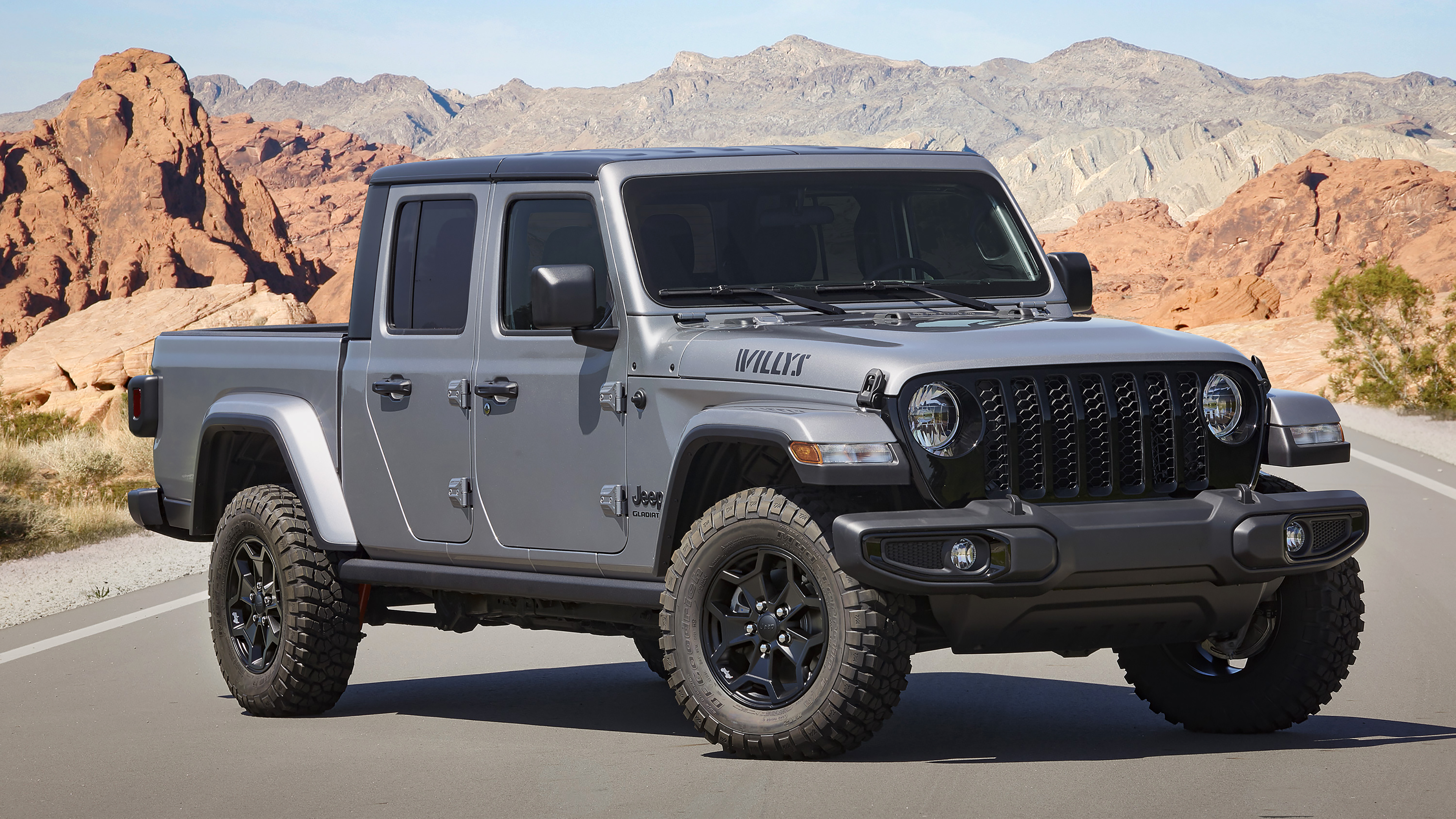
Important Considerations Before Buying
Acquiring a used engine, especially one decades old, carries inherent risks. Thorough inspection and due diligence are paramount.
- Condition is King: Engines are typically sold in several conditions:

- Core: Seized, incomplete, or unknown internal condition. Suitable only for a full rebuild. These are the cheapest but require the most work.
- Rebuildable Core: Turns freely, generally complete, but clearly needs an overhaul (new bearings, rings, gaskets, valve work).
- Running Engine (Untested): Claimed to run when removed, but no recent verification. Buyer beware.
- Running Engine (Tested/Video): Seller provides video of the engine running, showing oil pressure, no major knocks. Less risk, but still advise inspection.
- Professionally Rebuilt: Fully remanufactured by a reputable shop, often with a warranty. The most expensive option but offers peace of mind.
- Completeness: Does the engine come with crucial accessories like the carburetor, distributor, intake and exhaust manifolds, fuel pump, starter, generator/alternator, and bell housing? These components can be expensive and time-consuming to source individually.
- Casting Numbers & Identification: Confirm it’s genuinely an F-Head (134 cu in) and, if possible, verify its original application if authenticity is critical for your project.
- Physical Inspection: Look for signs of:
- Cracks: Especially in the block (freeze cracks from inadequate coolant) or cylinder head. These are often deal-breakers.
- Rust & Corrosion: Inside cylinder bores, water jackets, and on external surfaces. Pitting in bores can require costly machining.
- Previous Repairs: Evidence of welding, shoddy previous work, or non-standard modifications.
- Oil Sludge: Excessive sludge inside the valve cover or oil pan suggests poor maintenance.
- Shipping Logistics: F-Head engines are heavy. Factor in freight shipping costs, which can be substantial, and ensure the seller can properly crate and load the engine for transport.
- Documentation: Always get a bill of sale, and ideally, some proof of the engine’s origin, especially if it’s coming from a complete vehicle.
Rebuilding vs. Buying a Running Engine
This is a critical decision influenced by your budget, mechanical skill, and timeline.
- Buying a Running Engine: If you find a well-documented, tested running engine, it offers the quickest path to getting your Jeep on the road. However, even a running engine from an unknown source should be thoroughly inspected, and at minimum, receive new gaskets, seals, fluids, and a tune-up before installation. Hidden issues like worn bearings or low compression can quickly turn a "bargain" into an expensive problem.
- Rebuilding an Engine: This is often the preferred route for a long-term, reliable solution. Starting with a rebuildable core allows you to address all potential issues, ensuring everything is to spec. While costly and time-consuming (requiring machine shop work for cylinder boring, crankshaft grinding, valve seat work, etc.), a properly rebuilt F-Head will essentially be a "new" engine, offering decades of trouble-free service. Many parts, like pistons, rings, bearings, and gaskets, are still readily available.
Installation and Maintenance Tips
Once you’ve acquired your F-Head, careful installation and ongoing maintenance are key to its longevity.
- Professional vs. DIY: Engine installation can be complex. If you lack experience, consider professional help. Even if you DIY, invest in a good service manual (like the Willys factory manual).
- Pre-Installation Check: Before dropping the engine in, ensure all accessories are clean and functional. Replace all seals and gaskets (rear main seal, oil pan gasket, valve cover gasket, etc.).
- Proper Fluids: Use the correct oil (often a non-detergent or specific classic car oil for flat tappet engines), coolant, and greases as specified in the original service manual.
- Ignition & Fuel System: These are common culprits for poor running. Ensure the distributor is in good shape, points (or electronic ignition conversion) are set correctly, and the carburetor is clean and properly tuned.
- Regular Maintenance: The F-Head is a simple engine but thrives on regular oil changes, valve adjustments, ignition timing checks, and cooling system maintenance. Its robust design means it can last for many years with proper care.
Estimated Jeep F-Head Engine Pricing
The price of a Jeep F-Head engine for sale varies significantly based on its condition, completeness, and the seller. The table below provides general estimates, but always remember to factor in shipping costs and potential rebuild expenses.
| Condition Category | Description | Estimated Price Range (USD) | Key Considerations |
|---|---|---|---|
| Core Engine | Seized, incomplete, or unknown internal condition. Suitable for a full rebuild only. | $300 – $800 | Requires full disassembly, machining, and new parts. High potential rebuild cost. |
| Rebuildable Core | Turns freely, mostly complete, but needs a full overhaul (new rings, bearings, gaskets, valve work). | $800 – $1,500 | Lower rebuild cost than a seized core. Still a significant project requiring machine shop services. |
| Running Engine (Untested) | Claimed to run when removed, but no recent test or warranty. Often incomplete. | $1,500 – $2,500 | High risk of hidden internal issues. Factor in potential repairs or a full rebuild. |
| Running Engine (Tested/Video) | Demonstrated to run (video proof, oil pressure check), no major knocks. Often more complete. | $2,500 – $4,000 | Best for direct swap, but still advised to perform a thorough inspection and minor refresh before long-term use. |
| Professionally Rebuilt | Fully remanufactured by a reputable shop, often with a limited warranty. "Turn-key" ready. | $4,000 – $7,000+ | Highest initial cost, but offers the most reliability and peace of mind. Minimal immediate work required. |
| Individual Components | Carburetor, distributor, manifolds, starter, generator, etc., sold separately. | $50 – $500+ (each) | Crucial for completeness, often need rebuilding themselves. Adds significantly to overall project cost. |
Note: Prices can fluctuate based on market demand, rarity, and the seller’s location.
Frequently Asked Questions (FAQ)
Q: What vehicles commonly used the Jeep F-Head engine?
A: The 134 cu in F-Head (Hurricane) engine primarily powered the Willys CJ-3B, early CJ-5 and CJ-6 models, the M38A1 military Jeep, and various Willys/Jeep Wagons, Trucks, and Forward Control (FC) vehicles from the early 1950s to the mid-1970s.
Q: Is it difficult to find parts for an F-Head engine?
A: No, for common wear items like gaskets, seals, pistons, rings, bearings, and valve train components, parts are still readily available through specialized classic Jeep parts suppliers and even some general auto parts stores. More obscure components might require a wider search.
Q: Can an F-Head engine be converted to 12-volt?
A: Yes, it’s a very common conversion. It typically involves replacing the original 6-volt generator with a 12-volt alternator, changing the coil, and potentially the starter solenoid, and ensuring all electrical components (lights, gauges) are compatible with 12 volts.
Q: What’s the main difference between an L-Head and an F-Head engine?
A: The primary difference is the valve arrangement. In an L-Head (like the Go-Devil), both intake and exhaust valves are in the engine block. In an F-Head, the intake valves are in the cylinder head (overhead), and the exhaust valves are in the block (side-valve). This allowed the F-Head to produce more horsepower and be more efficient.
Q: How much horsepower does an F-Head engine produce?
A: The 134 cu in F-Head (Hurricane) engine typically produced around 70-75 horsepower and approximately 114-118 lb-ft of torque, a significant increase over the L-Head’s roughly 60 hp.
Q: Are F-Head engines reliable?
A: Absolutely. When properly maintained and rebuilt, F-Head engines are renowned for their rugged durability and reliability. Their simple design makes them relatively easy to work on and forgiving of less-than-ideal conditions, a characteristic essential for their original Jeep applications.
Conclusion
Finding a Jeep F-Head engine for sale is more than just a transaction; it’s a step towards preserving a piece of automotive history. Whether you’re undertaking a meticulous restoration, replacing a worn-out heart, or simply cherishing the engineering of a bygone era, the F-Head offers a unique blend of heritage, simplicity, and rugged dependability. The journey of acquiring, rebuilding, and installing this iconic power plant can be challenging, but the reward of hearing that distinctive rumble come to life in your classic Jeep is immeasurable. By understanding its legacy, knowing where to look, and carefully considering your options, you can ensure your F-Head acquisition is a successful one, allowing you to experience the enduring spirit of the Jeep for years to come.
